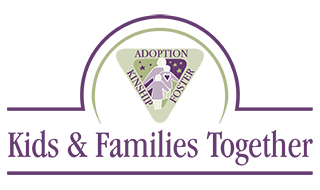Having Faith November 2020
Hello to all of you who take the time to read my Having Faith column. I must admit that I am having a particularly difficult time focusing on writing. I have been working from home since March, and like many, I am suffering from COVID fatigue, while being grateful for being able to work from home which is not the case for essential workers. Every day, I am appreciative of all the ways essential workers do their part to take care of the rest of us and I am attempting to do my part to help keep them safe by following the guidelines for wearing a mask when out and about, social distancing, and using lots of hand sanitizer when I am in a public setting.
Since the first lock down happened in Ventura, I have been experiencing more anxiety and using mindfulness meditations and talking with friends to keep myself as grounded as possible. Isolation is never the answer when handling stressful situations.
I am an adult writing about this with no children living with me on an ongoing basis and I am thinking about all of you caregivers out there tasked with preparing your kids for the long-haul of the pandemic. None of us know how long this is going to last and for kids, it is having an impact on their mental health. Many at K&FT working with kids report seeing more depression, anxiety, and confusion. As the adults, it is important to provide reassurance, which is hard to come by when we don’t even know what is to come next.
Routines are helpful for everybody and they’re especially helpful for children. Structure can help us to navigate and manage our own emotions. Create new routines that might have to change, but work together as a family to create what will work for you. This is a great time to make it clear that your family – whatever shape it might take – is a team, and that each family member is an essential part of the team.
Whether school is in person, virtual, or a hybrid model, do your best to create a daily routine that you all stick to in order to offer kids stability in this time of confusion.
As we head into the holidays, there might be changes this year in with who, and how, you are spending these important family times. For all of us, our ability to tolerate disappointment is being tested more than ever, which can be especially impactful on children. While it is difficult to see our kids upset, it’s important to take the time to validate their emotions and not rush to problem solving too quickly. However, when you do move into problem solving, be as creative as possible to find fun and unique ways for celebrating.
If you have a child that is fearful about COVID, start by asking her to tell you what scares her about COVID. Then you can talk to her about what you plan to do in your family to stay healthy. You can also be honest about the fact that there is a lot we do not know. With older kids, you can be more candid and ask them what they think is happening in the world right now, and then tell them what you know and what you don’t know. Promise you will continue talking about what comes next as things continue to change and progress. With pre-school age kids, explain that doctors are working to find medicine that will help us all to be healthy and to eventually get to be with all of our friends and family again.
In order for you as the caregiver to handle all of this with your children, remember the rule when flying, to put your own oxygen mask on first before helping your child with theirs. The first step in these challenging times is to breathe slowly and consciously and check in with yourself and your own emotions before you go and help with your kids’ emotions. For now, we need to accept that life as we know it is constantly changing. Be prepared for that, experience your emotions, and just keep moving. We can all get through this challenging time if we pull together and support one another in every way possible.
 Kids and Families Together
Kids and Families Together